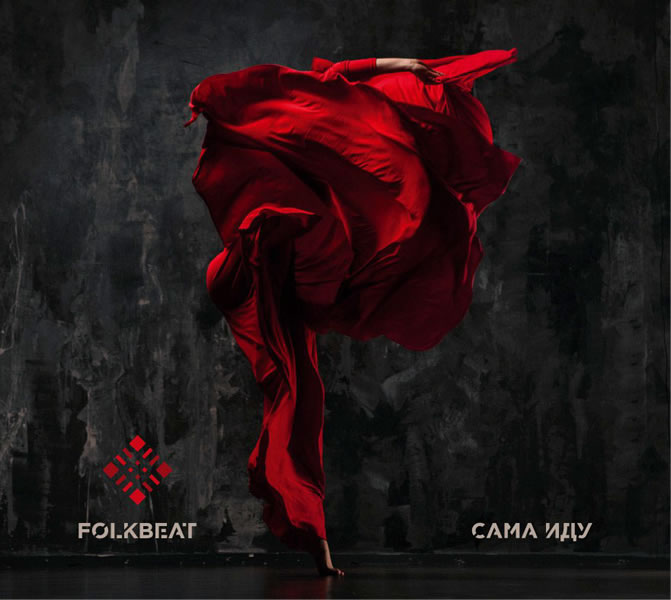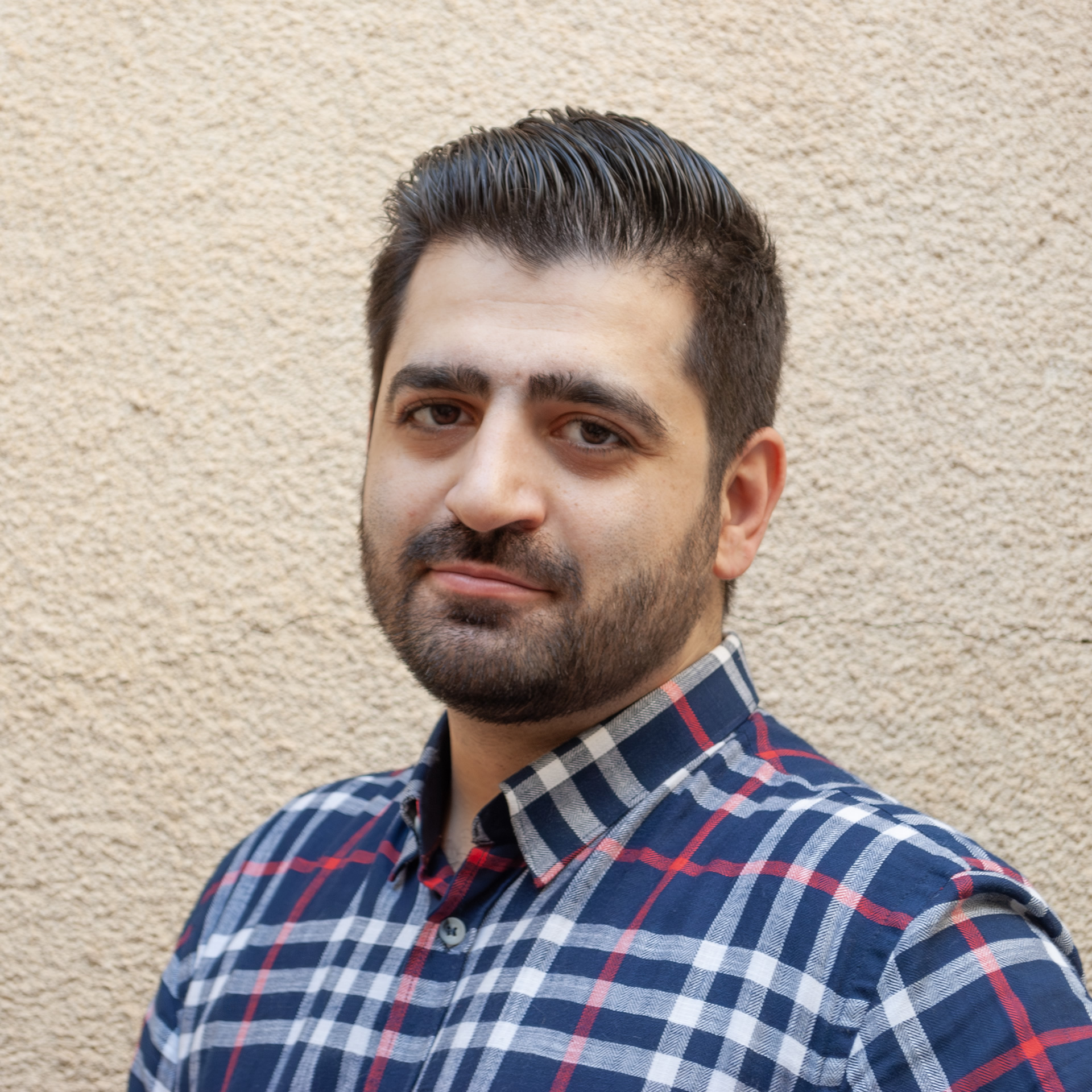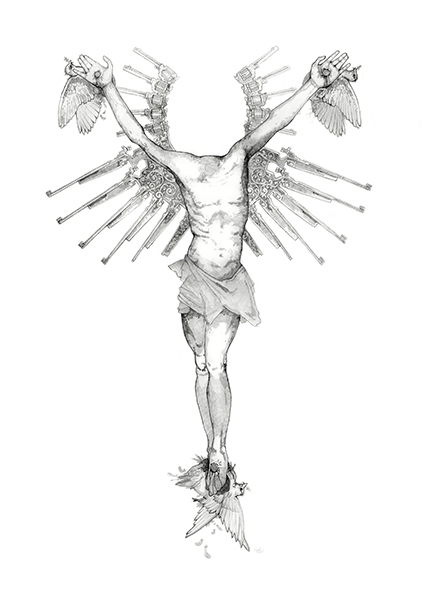
Going Down the Path of a Wasteland is Better than Sitting Idly
اردیبهشت ۱۴, ۱۳۹۷
(Cinématon) گاسپار نوئه در مستند سینماتن
خرداد ۱, ۱۳۹۷Ahmad Shamlou wrote “The Tablet” (in Persian: «لوح») in 1964, when he was 38 years old. This poem is from the middle stage of Shamlou’s life as a poet, when he was already a recognized poet in Iran. The Tablet has political, atheistic, and anti-war themes.
The Tablet is among my most favorite poems by Ahmad Shamlou. I translated it when I was an undergraduate student. A cool teacher at Mazandaran University, Mr. Iman Poortahmasbi, helped me with the editing back then. I got it published in a literary student journal named Derafsh-e Mehr, which I managed at the university. But since then I have changed many parts of The Tablet as my understanding of it changed.
I invite you to read my essay on Ahmad Shamlou if you like. You can also read some more translations of Ahmad Shamlou’s poems here on Sinarium. But first, Read The Tablet:
The Tablet – A Poem by Ahmad Shamlou
As the dark clouds passed,
under the livid shadow of the moon
I saw the square and the street
that looked like an octopus stretching its languid legs to every direction
in a deep gray ditch.
And on the cold pavement
people were standing
in multitudes.
And their long waiting
was turning into
despair and strain.
And each time
restlessness of waiting
that vibrated their collectivity,
was such, as if
there has been a twitch in an animal’s skin
when feeling a cold drop of water
or an itch.
□
I stepped down the dark stairways,
with the dusty tablet
on the palms of my hands.
I stood
on a small landing
which overlooked the square by a half-pike.
And I saw the people
in multitudes,
Who filled the space
all around the square,
as they did the space inside it;
And the rest of them
were on each and every street leading to the square,
and their extension stretched far as to
to the margins of shadows and blackness;
and like a wet ink
spilled out
in the darkness.
And with them there were
waiting and silence.
Thus, I held up
the clay tablet
with the tips of my fingers,
And I cried unto them:
“_Everything that there is
is here
and beyond this
there is nothing
but this.
This is an old
weary tablet,
But here_ lo!
Though it is smudged with
pus and blood
of many wounds,
it speaks of mercy and friendship,
and of innocence.”
The mass but had no
ear or heart for me;
It was such, as if in looking forward
there was a benefit
and a pleasure
for them.
I yelled, that:
“_If you have nothing up your sleeves
with waiting,
then it is vain, what you are doing;
the final message
is but this!”
I cried out:
“_That era when you mourned for your crucified Jesus
is over;
because now
each woman
is a Mary.
And each Mary
has a crucified Jesus,
without a crown of thorn, a cross, or Golgotha;
without a Pilate, the judges, or the jury._
Jesuses with a similar destiny,
Jesuses who all look the same;
with the same garments,
and with the same shoes and putties _all the same as they have been described_
and with an equal share of bread and soup
[Because equality, is the precious heritage of the human race, aye!]
And if you do not have a crown of thorn to wear,
you have a helmet;
And if you do not have a cross to bear,
you have a rifle.
[The articles of glory
all are ready!]
And each supper
might be “The Last Supper”;
And each look
might be the look of Judas.
But do not wear your feet out
by chasing after
The Garden,
because you will meet the tree
on cross
instead,
when the dreams of mercy and humanity
softly and lightly fades
before your eyes
like a mist,
and the burning bluntness of reality
pierces your eyes
like spars of the desert sun,
and when you perceive how unfortunate_
how unfortunate you are!
and that it would have sufficed if you had much less,
to feel more blissful:
a hail with sincerity
a handshake with warmth
and a smile with honesty.
But you have not been provided with this least of grace!
Nay,
do not wear your feet out
by chasing after
the Garden;
for this is not the time for praying
nor for a curse,
Neither for forgiveness
nor for spite.
And alas that the path of the cross
no more
leads up to the sky
but leads to the inferno
and eternal wandering of the soul.”
□
And I cried in my heavy fever
and the mass
gave neither heart nor ear to me.
I learned that
these people
did not look forward to
a tablet of clay,
but a book
and a sword
and sentinels who would assail them
with whips and maces,
and would subdue them to kneel,
before the one who
comes down the dark stairs
holding a Book and a Sword.
Thus, much I wept
_and every teardrop of mine was a truth;
though truth
itself
is nothing but a word._
as if
I was repeating
a despairing truth
by such weeping.
Oh,
these people
look for the terrifying truths
only
in the legends;
and that is why they take the sword
as the emblem of eternal justice;
because in our time
sword
is the weapon of the legends.
Also, that is the reason
why they
only
take him as a martyr in the path of truth,
who uses his chest
as an aegis before
a “sword”.
As if they do not prefer
torture, pain, and martyrdom
_which are very ancient things_
to be done with modern tools;
otherwise,
those many lives
that burnt
with the fire of gunpowder!_
otherwise,
those many lives,
of which
only
a vague shadow remains:
a number
among the terrifying figures of thousands and thousands!_
Oh,
these people
look for the truth
only in the legends;
Or
they find the truth
to be nothing
but a legend.
□
And my fiery speech did not kindle them
because about the Skies
I said the final word,
without speaking
of the Skies.
Featured images are by Vadim Stein and Richard Olmsted.

کارشناس زبان و ادبیات انگلیسی | کارشناس ارشد سینما | مدیر ویسایت سیناریوم |
از نوشتن و ترجمه لذت می برم _به خصوص اگر راجع به سینما و ادبیات باشه |
سیناریوم رو زمستون ۹۶ درست کردم و تابستون ۹۷ یک فروشگاه اینترنتی یادگاری های سینمایی هم بهش اضافه کردم | سیناریوم اول برام یه تفریح بود اما الان برام تبدیل شده به یه «خود دیگر»!








